Window of opportunity for agreement on JCPOA revival is open, but not forever: Iranian FM
Iranian Foreign Minister Hossein Amir-Abdollahian says the window of opportunity is open for the three European parties to the 2015 nuclear deal to reach a good and durable agreement in the talks on the removal of sanctions and revival of the multilateral agreement.
Amir-Abdollahian wrote in a post published on his Twitter page late on Friday that he had talked with the European Union High Representative for Foreign Affairs and Security Policy Josep Borrell about the final steps on the course of negotiations to resurrect the deal, officially known as the Joint Comprehensive Plan of Action (JCPOA), when they met on the sidelines of the second edition of a regional summit on Iraq in the Jordanian capital of Amman on December 20.
Read more:
He elaborated that the window of opportunity for agreement on the JCPOA revival is open on the part of Iran, but will not remain open forever.
“The window of agreement is open on the part of Iran, but not forever,” Amir-Abdollahian pointed out.
The talks to salvage the JCPOA kicked off in the Austrian capital of Vienna in April 2021, with the intention of examining Washington’s seriousness in rejoining the deal and removing anti-Iran sanctions.
The negotiations have been at a standstill since August due to Washington’s insistence on its hard-nosed position of not removing all the sanctions that were slapped on the Islamic Republic by the previous US administration. Iran maintains it is necessary for the other side to offer some guarantees that it will remain committed to any agreement that is reached.
Elsewhere in his Twitter post, the Iranian foreign minister called for the political solution of the Ukraine crisis.
Russia started what it calls a “special military operation” in Ukraine with the declared aim of “de-Nazifying” the country on February 24, after Kiev failed to implement the terms of the Minsk agreements and Moscow’s recognition of the breakaway regions of Donetsk and Luhansk.
Since the onset of the war, the US and its European allies have imposed waves of unprecedented economic sanctions against Moscow while supplying large consignments of heavy weaponry to Kiev. The Kremlin says the sanctions and the Western military assistance will prolong the war.
Read more:
Despite the flow of financial and military support, particularly from Washington, the government in Kiev says still more is needed to tip the balance in Ukraine's favor in the war.
On December 9, Washington officially announced its decision to send another arms package to Kiev, which will include anti-drone and air defense systems.
The aid package, which reportedly includes rockets for High Mobility Artillery Rocket Systems (HIMARS), 155mm ammunition, Humvee vehicles, and generators, is estimated to be worth $275 million. The United States has also sent some $20 billion worth of weapons to Kiev, including artillery ammunition, munitions for NASAMS air defense systems and for HIMARS.
Amir-Abdollahian highlighted that Washington is in no position to lecture others on human rights.
“Neither Guantanamo and Abu Ghraib tragedies, nor the crimes perpetrated against women and children in Yemen and Afghanistan would entitle the United States the right to preach others,” Iran's foreign minister pointed out.
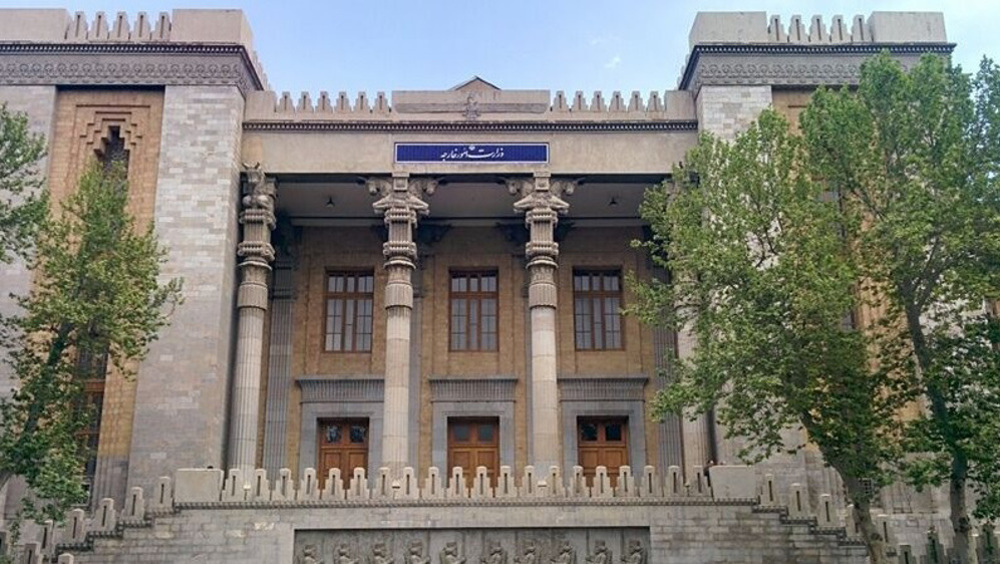
Iran summons Polish envoy over 'baseless, biased' drone claims
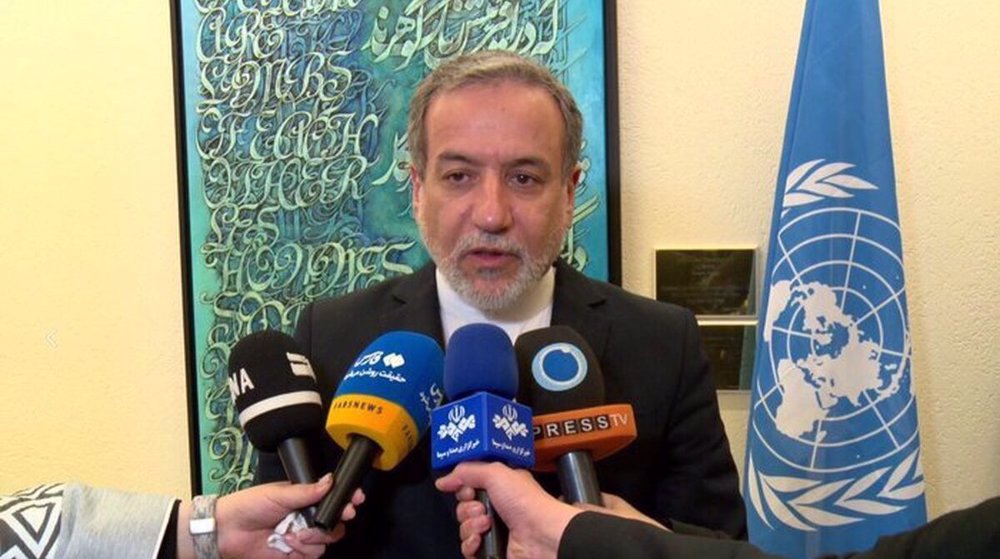
‘Misguided policies’: Araghchi says unjust sanctions inflict suffering on innocent Iranians
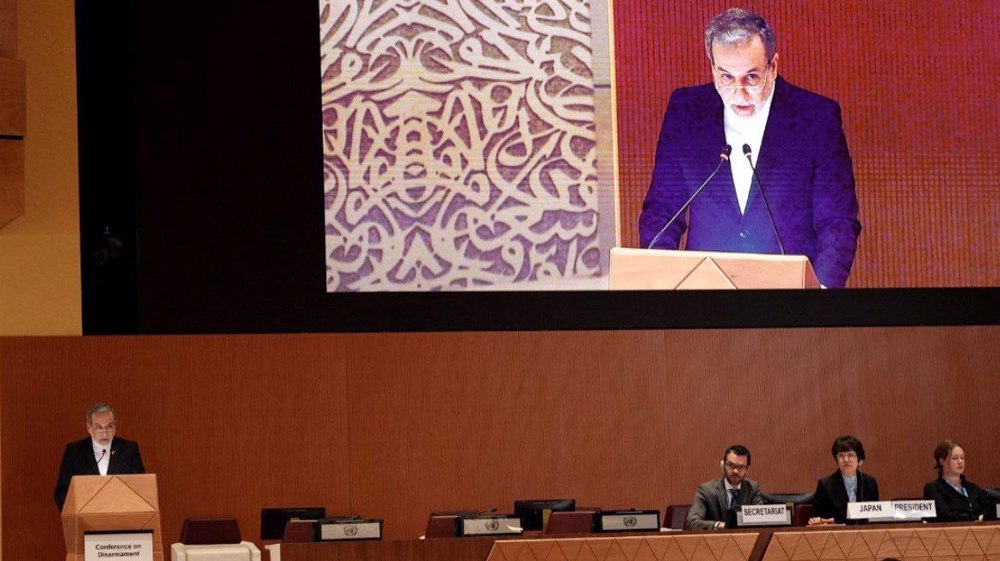
‘Grave threat’: Iran says Israel’s nukes endangering world, blasts US nuclear spending spree
Hezbollah's display of power proved resistance cannot be eliminated: Iran parl. speaker
Israel escalates West Bank raids as official says regime seeking to complete Gaza genocide
Australian senator smeared by anti-Iran groups for saying Iranian women 'have a voice'
Palestinian man dies in Israeli prison as Foreign Ministry urges intl. probe into regime’s crimes
Putin says not opposed to Europeans’ involvement in Ukraine talks
VIDEO | Iranian Kurdish protesters demand European action against PKK, PJAK terror
VIDEO | Israel expands offensive in northern West Bank, deploys tanks to Jenin
VIDEO | Spaniards fill streets of Cádiz in solidarity with Palestine


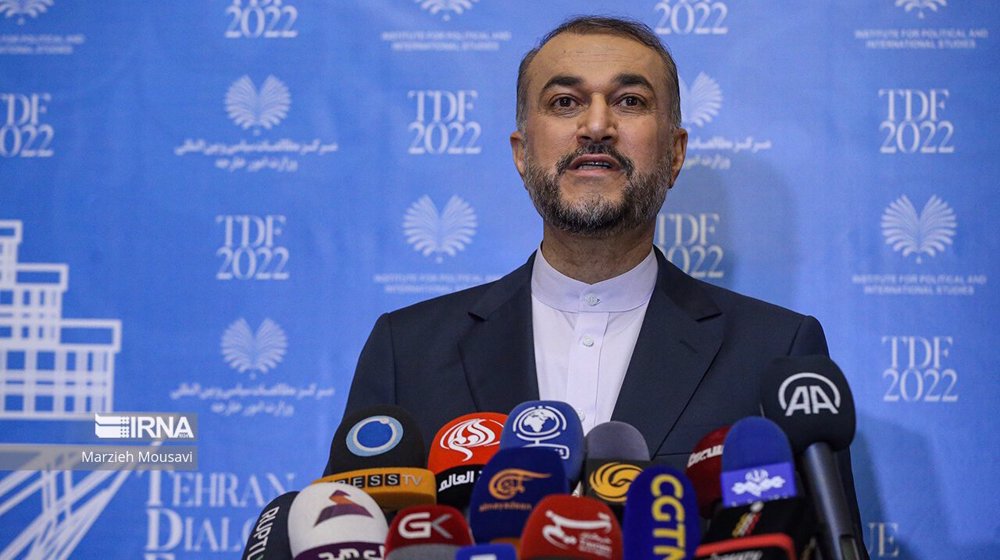



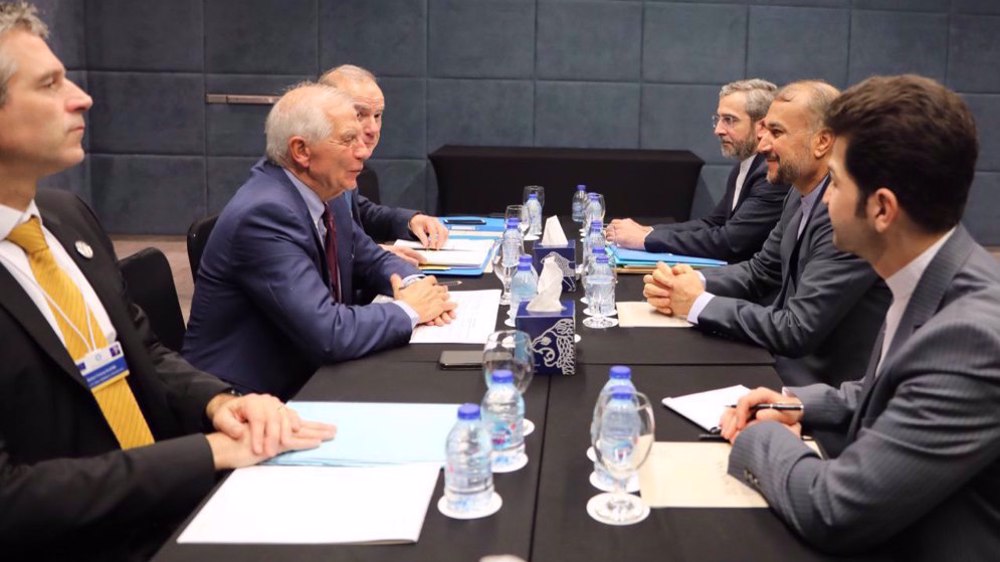
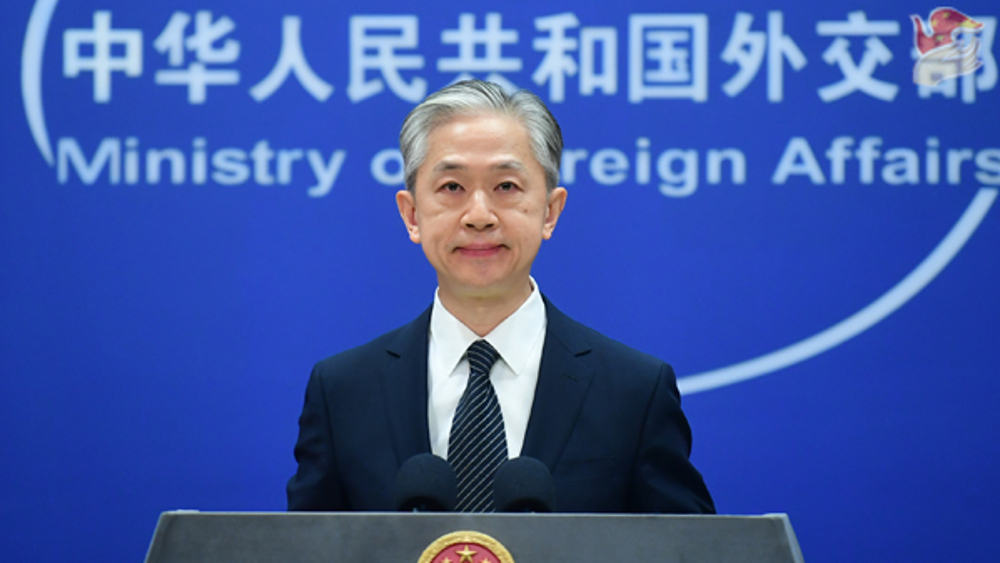
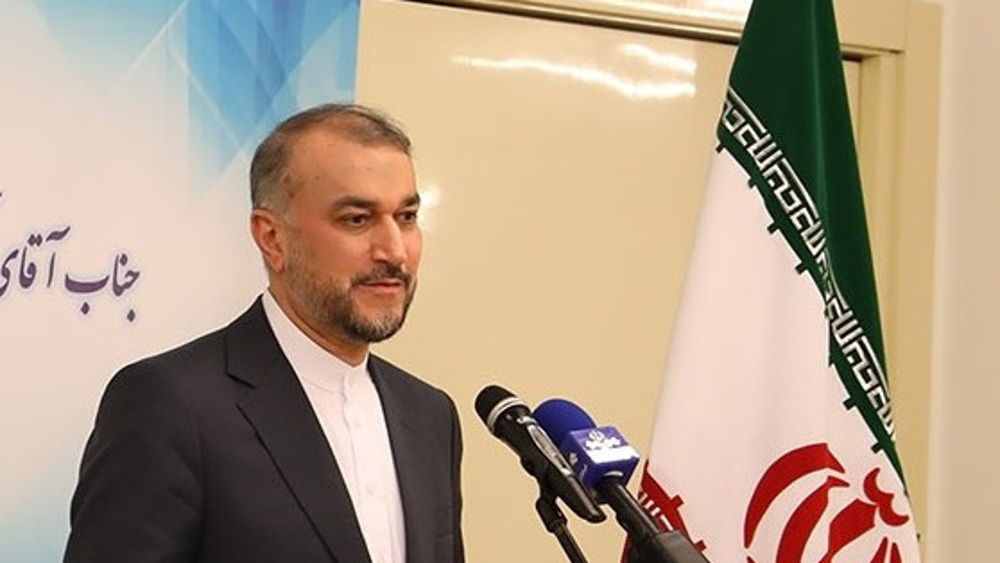
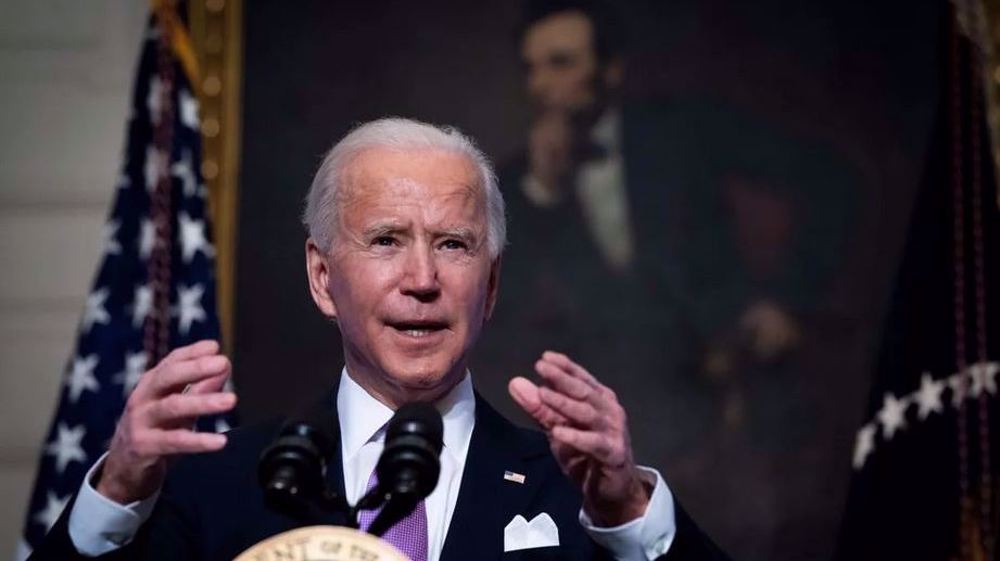
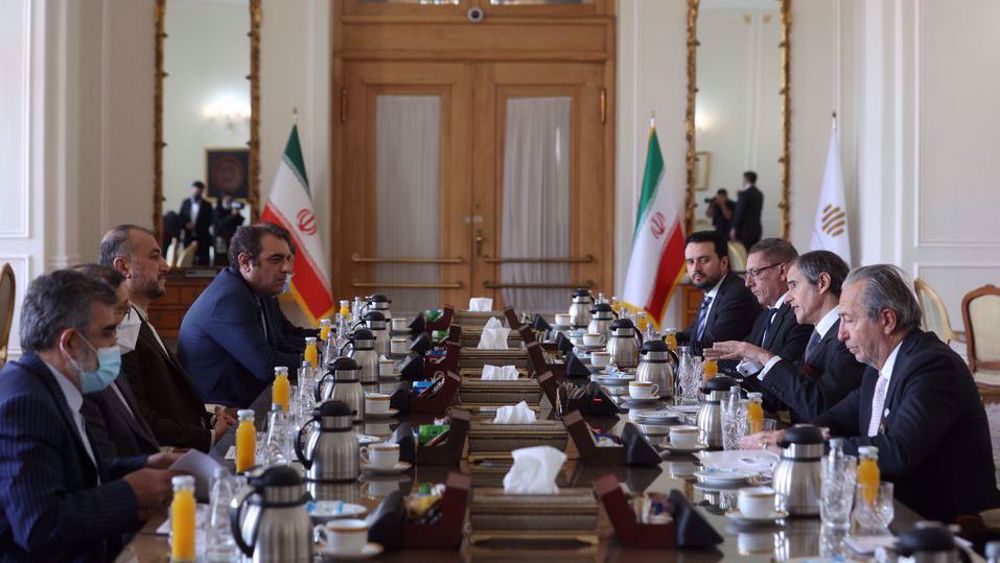
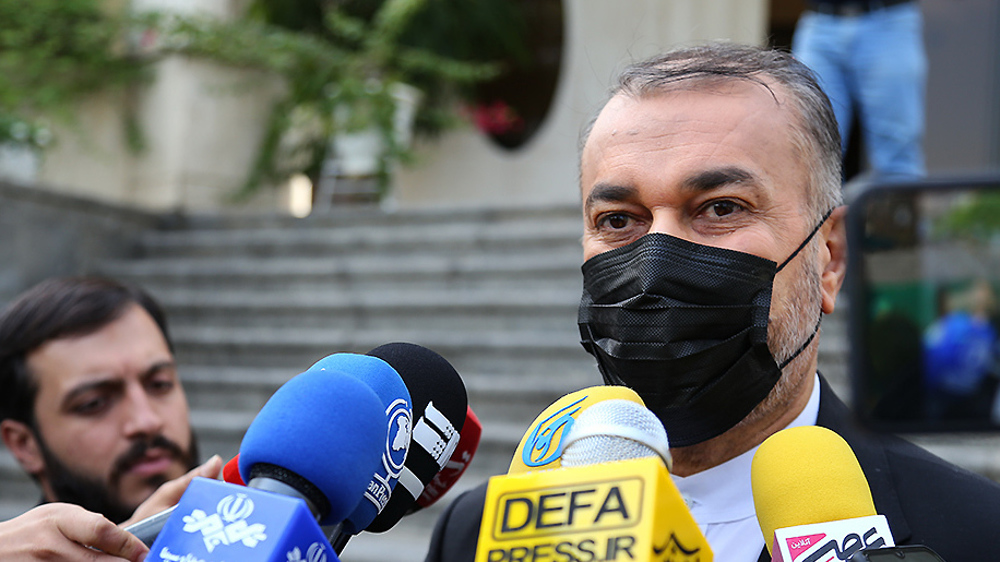
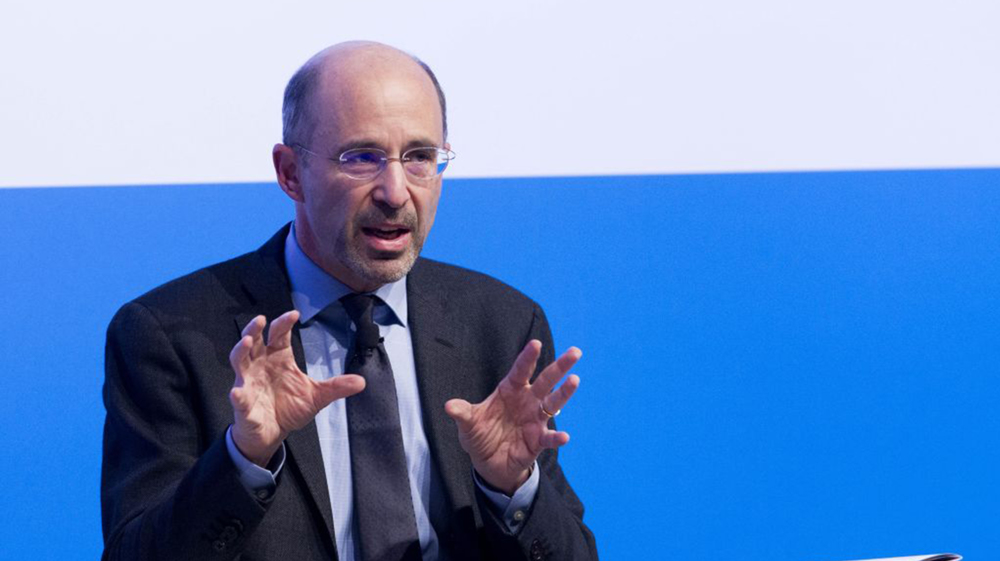
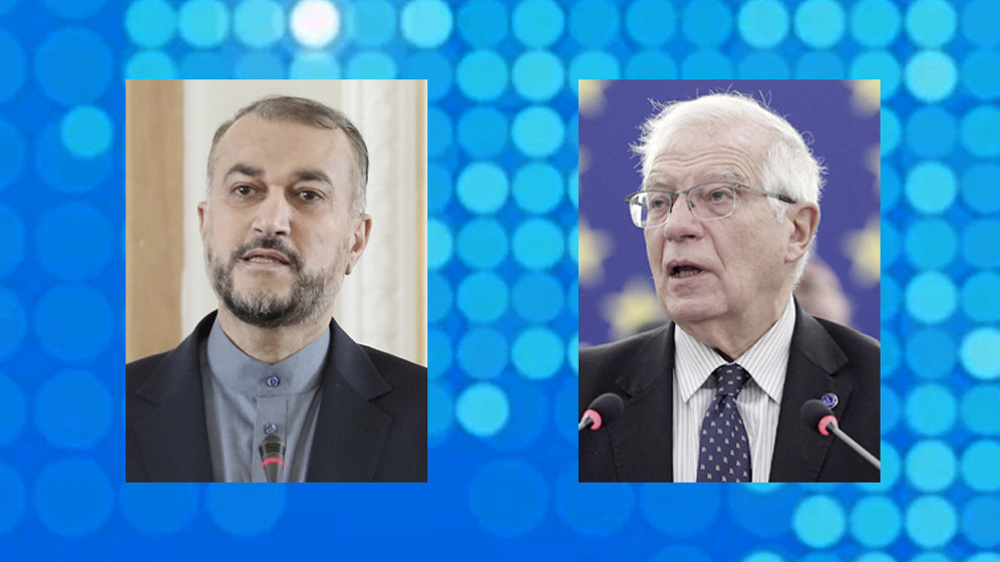
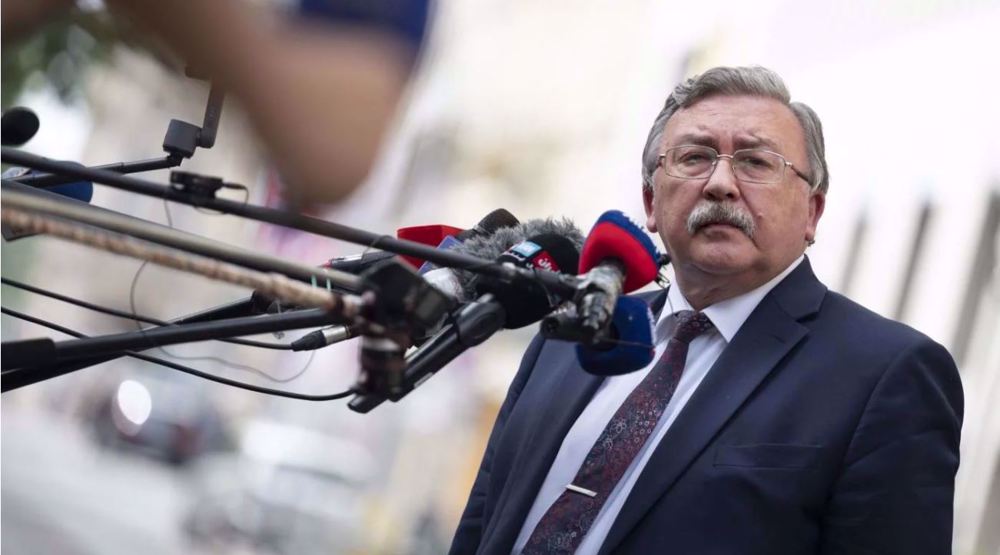
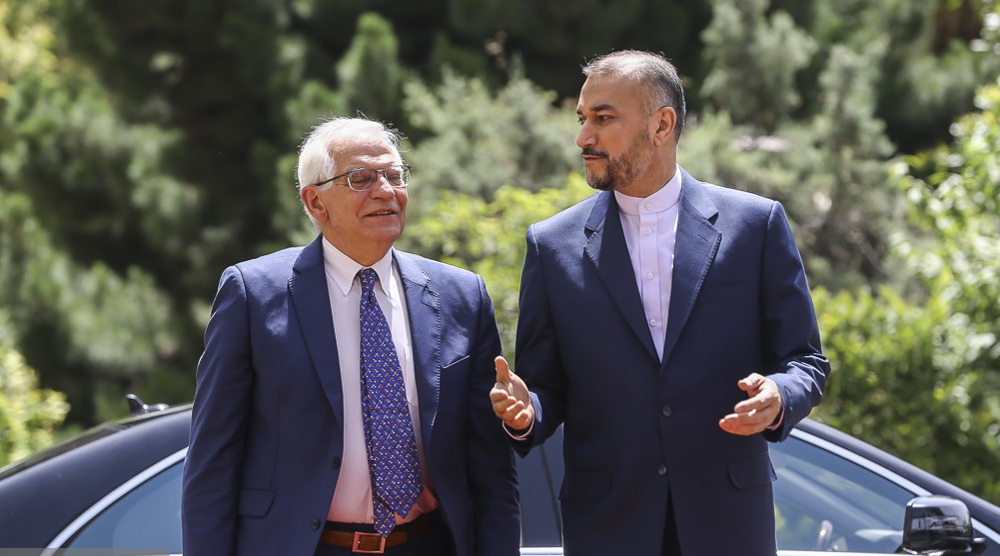

 This makes it easy to access the Press TV website
This makes it easy to access the Press TV website